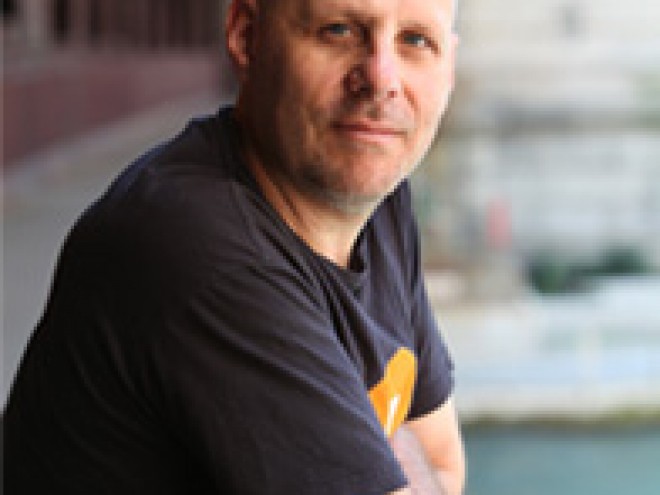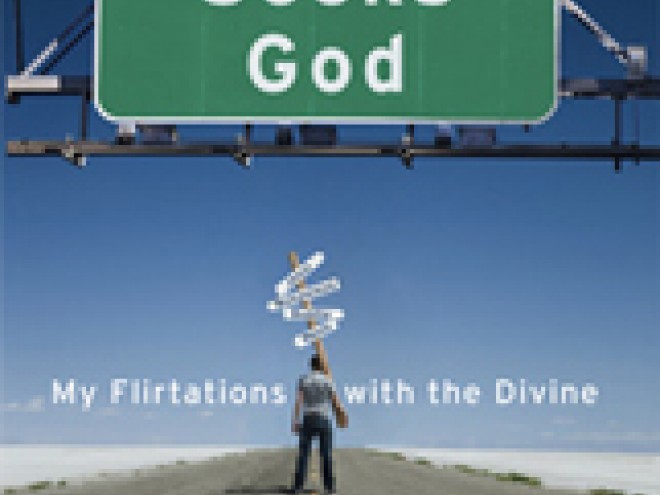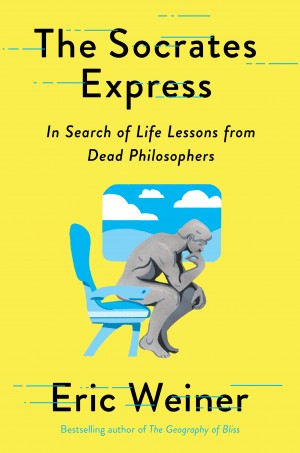By
– March 15, 2012
“It is folly to gauge the measure of another man’s faith,” writes Eric Weiner in Man Seeks God: My Flirtations with the Divine. I concur, but a reviewer of a book about a spiritual quest can’t help but attempt to assess the earnestness of the impulse and the depth of the endeavor, as well as the quality of the chronicle of it.
Weiner, born Jewish, is by his own accounting, a skeptic, a “Confusionist” when it comes to religion, a neurotic preoccupied with death, and a man who uses his charmingly self-deprecating and irreverent wit to habitually deflect decision, depth, and commitment. Weiner writes that Confusionists, “lack the smug uncertainty of the agnostic” and that Confusionists “have absolutely no idea what our religious beliefs are. We’re not even sure that we have any, but we’re open to the unexpected, and believe — no, hope that there is more to life than meets the eye.“
After a frightening episode that brought him to an emergency room where a nurse asked him, “Have you found your God yet,” Weiner says he couldn’t get the question out of his head. Not long afterward his young daughter asked him a question about God, and he had no adequate answer. Consequently, he decided to investigate eight religions, seemingly plucked from a hat, without explanation as to why he chose them and excluded others. His investigations, beyond reading (there’s an extensive bibliography), usually involve brief bursts of travel, something he relishes, and dipping his toe into the shallow end of different spiritual practices.
He dallies with Sufism in California at a camp of aging hippies, and whirls in Istanbul with dervishes; brushes against Buddhism in Nepal with a guru from Staten Island named Wayne; sojourns with Franciscan monks in the South Bronx; cross-dresses with breast-baring UFO believing Raëlians at a Las Vegas convention; tarries and takes tea while chatting about chi with a Taoist in Washington State before taking a Taoist tour of China; witnesses a Washington-based wiccan witch coven; tries to divine his animal totem in a geodesic dome with a shaman in Maryland; and kibbitzes with Kabbalah in the city of Tsfat in Israel. He calls it “shopping for God” as well as “flirting with the divine.“
Weiner’s existential and spiritual issues are undeniably real, his writing and wit are winning (I laughed frequently), he engages the people he meets in conversations of substance, and the book is always enjoyable and interesting. However, the episodic format, the reportorial gloss he gives to each religion, and his forever glib tone, while perfect for a travelogue, don’t lend themselves to conveying something as serious as a spiritual quest. In most spiritual autobiography, the quest precedes and stands independent from the book contract, here, the scope and structure of the quest seem contrived mostly just to meet the marketplace. The almost complete discounting of the mainstreams of Judaism, Christianity, Buddhism, and Islam also bespeak a certain lack of seriousness, and one doubts that he ever had any openness to becoming a Raëllian, a warlock, a monk, or a shaman. Most of the people he interviewed were serious spiritual seekers who really risked and invested themselves in the quest and in what they found, while he seems merely a tourist.
By the book’s end, Weiner incorporates a melange of pleasant elements of the religions he encountered into his life, inventing and assembling what he calls a “composite God” which/who “works” for him, although this seems little different than the new-age eclecticism that he himself disdains, writing, “Religions are like cuisines, They don’t always travel well. They get watered down, diluted, and the next thing you know you’re ingesting the spiritual equivalent of chow mein.” Good religion, Weiner writes at one point, “is supposed to be hard. Good religion pushes, as well as pulls, and in doing so tackles head-on Heschel’s urgent question: “How does a man lift his eyes to see a little higher than himself?” Weiner acknowledges that his own practice isn’t “so solid” and seems satisfied for the moment not to lift his eyes from his own chow mein, but as smart and self-aware as he is, he must know the journey and the quest must go on in more depth.
Weiner, born Jewish, is by his own accounting, a skeptic, a “Confusionist” when it comes to religion, a neurotic preoccupied with death, and a man who uses his charmingly self-deprecating and irreverent wit to habitually deflect decision, depth, and commitment. Weiner writes that Confusionists, “lack the smug uncertainty of the agnostic” and that Confusionists “have absolutely no idea what our religious beliefs are. We’re not even sure that we have any, but we’re open to the unexpected, and believe — no, hope that there is more to life than meets the eye.“
After a frightening episode that brought him to an emergency room where a nurse asked him, “Have you found your God yet,” Weiner says he couldn’t get the question out of his head. Not long afterward his young daughter asked him a question about God, and he had no adequate answer. Consequently, he decided to investigate eight religions, seemingly plucked from a hat, without explanation as to why he chose them and excluded others. His investigations, beyond reading (there’s an extensive bibliography), usually involve brief bursts of travel, something he relishes, and dipping his toe into the shallow end of different spiritual practices.
He dallies with Sufism in California at a camp of aging hippies, and whirls in Istanbul with dervishes; brushes against Buddhism in Nepal with a guru from Staten Island named Wayne; sojourns with Franciscan monks in the South Bronx; cross-dresses with breast-baring UFO believing Raëlians at a Las Vegas convention; tarries and takes tea while chatting about chi with a Taoist in Washington State before taking a Taoist tour of China; witnesses a Washington-based wiccan witch coven; tries to divine his animal totem in a geodesic dome with a shaman in Maryland; and kibbitzes with Kabbalah in the city of Tsfat in Israel. He calls it “shopping for God” as well as “flirting with the divine.“
Weiner’s existential and spiritual issues are undeniably real, his writing and wit are winning (I laughed frequently), he engages the people he meets in conversations of substance, and the book is always enjoyable and interesting. However, the episodic format, the reportorial gloss he gives to each religion, and his forever glib tone, while perfect for a travelogue, don’t lend themselves to conveying something as serious as a spiritual quest. In most spiritual autobiography, the quest precedes and stands independent from the book contract, here, the scope and structure of the quest seem contrived mostly just to meet the marketplace. The almost complete discounting of the mainstreams of Judaism, Christianity, Buddhism, and Islam also bespeak a certain lack of seriousness, and one doubts that he ever had any openness to becoming a Raëllian, a warlock, a monk, or a shaman. Most of the people he interviewed were serious spiritual seekers who really risked and invested themselves in the quest and in what they found, while he seems merely a tourist.
By the book’s end, Weiner incorporates a melange of pleasant elements of the religions he encountered into his life, inventing and assembling what he calls a “composite God” which/who “works” for him, although this seems little different than the new-age eclecticism that he himself disdains, writing, “Religions are like cuisines, They don’t always travel well. They get watered down, diluted, and the next thing you know you’re ingesting the spiritual equivalent of chow mein.” Good religion, Weiner writes at one point, “is supposed to be hard. Good religion pushes, as well as pulls, and in doing so tackles head-on Heschel’s urgent question: “How does a man lift his eyes to see a little higher than himself?” Weiner acknowledges that his own practice isn’t “so solid” and seems satisfied for the moment not to lift his eyes from his own chow mein, but as smart and self-aware as he is, he must know the journey and the quest must go on in more depth.
Read Eric Weiner’s Posts for the Visiting Scribe
On Carrots and Fishes and Jewish Souls
Eric Ackland is a freelance writer.




